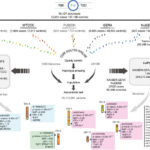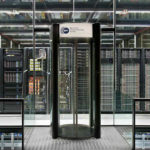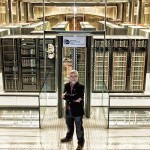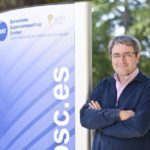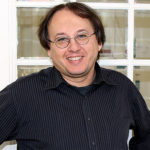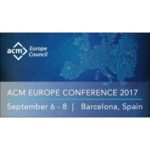Filippo Mantovani from BSC gave this talk at the GoingARM workshop at SC17. “Since 2011, Mont-Blanc has pushed the adoption of Arm technology in High Performance Computing, deploying Arm-based prototypes, enhancing system software ecosystem and projecting performance of current systems for developing new, more powerful and less power hungry HPC computing platforms based on Arm SoC. In this talk, Filippo introduces the last Mont-Blanc system, called Dibona, designed and integrated by the coordinator and industrial partner of the project, Bull/ATOS.”
New HPC for Energy White Paper looks at Exascale Architectures for Greener Combustion Systems
The use of new Exascale architectures and the corresponding advances in codes to fully exploit new chip capabilities will help address challenges for combustion technologies, wind power generation and hydrocarbon exploration, allowing a transition to greener and more advanced energy systems based on alternative fuels combined with renewable energy technologies. “This project has revealed the synergies between European and Brazilian researchers, and has strengthened the bilateral relationships. From the point of view of the technical results, the project has been a success, having achieved all the planned objectives.”
MareNostrum 4 Named Most Beautiful Datacenter in the World
The MareNostrum 4 supercomputer at the Barcelona Supercomputing Centre has been named the winner of the Most Beautiful Data Center in the world Prize, hosted by the Datacenter Dynamics Company. “Aside from being the most beautiful, MareNostrum has been dubbed the most interesting supercomputer in the world due to the heterogeneity of the architecture it will include once installation of the supercomputer is complete. Its total speed will be 13.7 Petaflops. Its main memory is of 390 Terabytes and it has the capacity to store 14 Petabytes (14 million Gigabytes) of data. A high-speed network connects all the components in the supercomputer to one another.”
MareNostrum Supercomputer to contribute 475 million core hours to European Research
Today the Barcelona Supercomputing Centre announced plans to allocate 475 million core hours of its supercomputer MareNostrum to 17 research projects as part of the PRACE initiative. Of all the nations participating in PRACE’s recent Call for Proposals, Spain is now the leading contributor of compute hours to European research.
Jesús Labarta from BSC to receive Ken Kennedy Award
Today ACM and IEEE Computer Society named Jesús Labarta of the Barcelona Supercomputing Center as the recipient of the 2017 ACM-IEEE CS Ken Kennedy Award. Labarta is recognized for his seminal contributions to programming models and performance analysis tools for high performance computing. The award will be presented at SC17.
Video: MareNostrum Supercomputer Powers LIGO Project with 20 Million Processor Hours
Today the Barcelona Supercomputing Center announced it has allocated 20 million processor hours to the LIGO project, the most recent winner of the Nobel Prize for Physics. “The importance of MareNostrum for our work is very easy to explain: without it we could not do the kind of work we do; we would have to change our direction of research.”
Kathy Yelick to Keynote ACM Europe Conference
Kathy Yelick from LBNL will give the HPC keynote on Exascale computing at the upcoming ACM Europe Conference. With main themes centering on Cybersecurity and High Performance Computing, the event takes place Sept. 7-8 in Barcelona.


